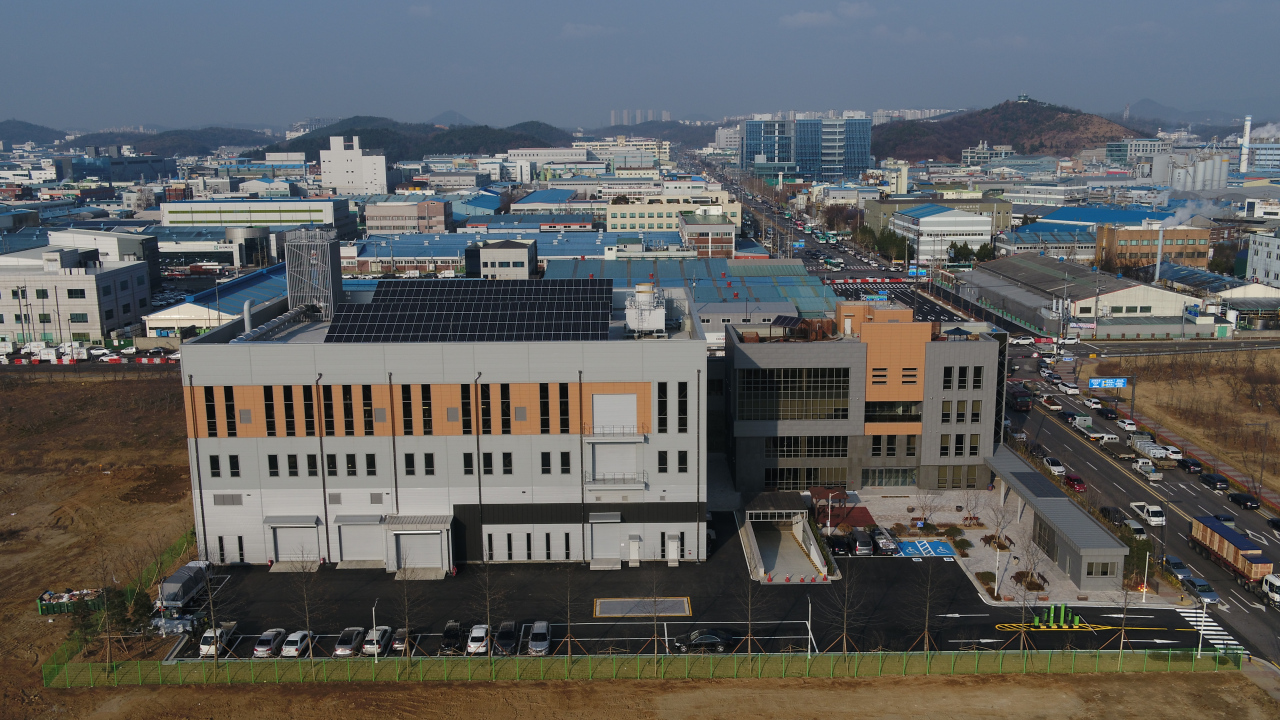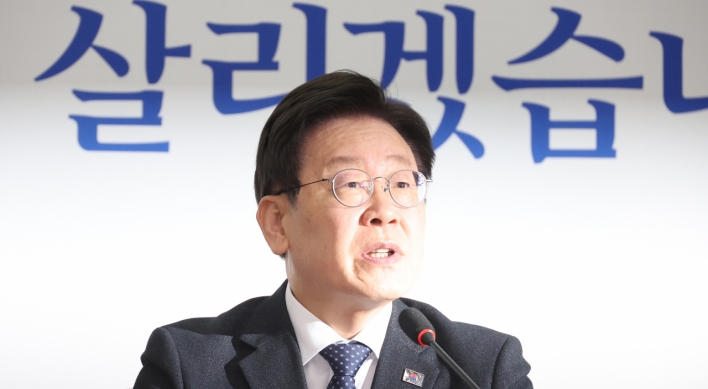
SEJONG -- The Korea Water Resources Corp., also known as K-water, is vitalizing an environmental project toward improving air quality around a mega industrial complex in the western part of the nation.
The project is drawing wide attention at home and abroad for its ability to provide renewable energy to both the industrial and residential sector, alongside the original function of reducing pollutants emitted from the complex.
The mega complex is composed of two industrial complexes -- Banwol and Sihwa -- which have been in operation since the industrialization era of 1970s and 1980s, respectively. These are located in Gyeonggi Province’s Ansan and Siheung.
The dense Banwol-Sihwa complex has been notorious among major industrial complexes across the nation for packing the most number of factories in its vicinity, in which about 18,000 businesses are operating assembly lines.
A core problem that arose was that small and midsized enterprises had difficulty in satisfying global and state-led requirements for carbon dioxide emissions, even if most of them were equipped with facilities to reduce air pollutants.
Due to SMEs’ shortage of manpower and financial burden, it was difficult for them to manage their own environmental facilities in an efficient, appropriate manner.
“Many of their environmental facilities -- which were originally designed to slash pollutants in industrial wastewater or other wastes by filtering through activated carbon (or activated charcoal) -- are outdated,” K-water stressed. “Some of them are pumping in cheap, low-quality activated carbon as a filtering tool.”
Sometimes, gases or liquids emitted outside via their inadequate filtering from the factories contain deteriorated pollutants than nonfiltered ones, the state-funded agency said.
Local businesses have entirely depended on imports to secure the activated carbon.
In a move to ease the burden, K-water has established a plant to co-recycle obsolete activated carbon in the complex, which is dubbed the Environment Energy Center in Jeongwang-dong, Siheung.
Since last September, the center has been collecting obsolete activated carbon from SMEs in the complex and regenerating a total of 22.5 metric tons of activated carbon a day by restoring its absorption capacity.
The center has successfully commercialized a new, more efficient recycling method in which it applies heat to the obsolete activated carbon at relatively low temperature (150-200 degrees Celsius).
“The low-temperature heat minimizes functional loss of activatived carbon during the recycling process, compared to the traditional method by applying heat at high temperature (800-900 degrees Celsius),” the agency said.
What is noteworthy is that the thermal energy produced during the recycling process is being used as a resource to provide warm water and residential interior heating for households in Siheung and Ansan -- which also contributes to regional production of renewable energy.
This triple effect -- environmental protection; effective recycling of activatived carbon; and creating new energy for the society -- is drawing attention at home and abroad.
The Environment Energy Center has recently also introduced an IT-integrated production process in recycling activated carbon.
The process is in line with the fourth industrial revolution as technologies including Internet of Things are adopted, which enables business owners to immediately detect the appropriate time to replace the obsolete activatived carbon with recycled ones.
In addition, when the recycled activatived carbon provided to SMEs reaches a level of disposal ultimately, the center provides them with new activatived carbon at reasonable prices.
K-water estimated that this eco-project would slash fine dust emissions totaling 362 tons and simultaneously offer residential interior heat to about 3,000 households per annum in the Banwol-Sihwa district.
K-water CEO Park Jae-Hyeon said the Environment Energy Center is a fresh business model in the local and overseas market, which has the multiple function of producing renewable energy -- for industries and households -- as well as improving the atmospheric environment.
“K-water would make full-fledged efforts to expand the business model to other major industrial complexes nationwide,” he said.
Expressing hopes that the agency could play a key role in paving the way for Korea to become a society whose sustainable development is possible, Park said K-water “would continue to push for the innovative green industry, on the basis of the fourth industrial revolution-related technologies.”
The state-run corporation, whose headquarters are located in Daejeon, has been implementing high-quality water supply projects to build an efficient water cycle system over the past few decades, apart from carrying out environmental projects.
By Kim Yon-se (kys@heraldcorp.com)



![[Herald Interview] 'Amid aging population, Korea to invite more young professionals from overseas'](http://res.heraldm.com/phpwas/restmb_idxmake.php?idx=644&simg=/content/image/2024/04/24/20240424050844_0.jpg&u=20240424200058)







![[Hello India] Hyundai Motor vows to boost 'clean mobility' in India](http://res.heraldm.com/phpwas/restmb_idxmake.php?idx=644&simg=/content/image/2024/04/25/20240425050672_0.jpg&u=)





![[Today’s K-pop] NewJeans' single teasers release amid intrigue](http://res.heraldm.com/phpwas/restmb_idxmake.php?idx=642&simg=/content/image/2024/04/26/20240426050575_0.jpg&u=)